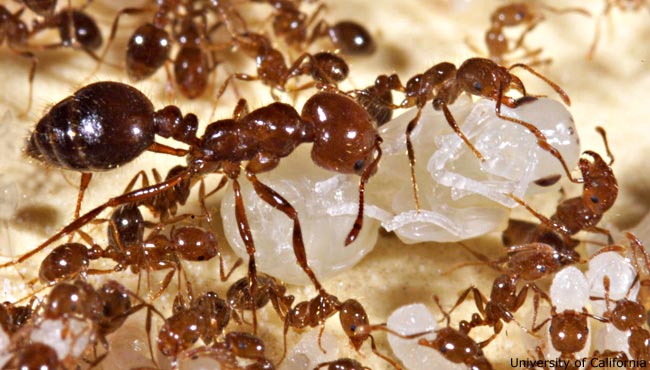Psyche! Fire Ants Play Dead

Opossums do it, some snakes do it and even big bison do it. Now a new study now shows fire ants do it, too. When threatened by danger, the young insects will play dead to fake out an attacker. "No one has ever reported this before, and it was a big shock to me," said Deby Cassill, an evolutionary biologist at the University of South Florida St. Petersburg. "Ants from an attacking colony will come up to inspect them, and they'll be curled up just like a dead ant. Then moments later they uncurl and walk away." Cassill and her students also noticed that as the ants age — some live six months to a year — they grow out of the curious behavior. Middle-aged ants tend to flee, while the eldest are aggressive and attack furiously. "All worker ants are sterile females, so it's the cranky old ladies who are the ones fighting to the death," Cassill said. She thinks several evolutionary reasons are behind the pesky ants' smart behavior. "The exoskeletons of young ants are actually quite soft, so they're more vulnerable to attack than older ants with thicker, tougher body parts," Cassill explained. "They also don't have a lot of attacking power because of the softness of their exoskeleton." Cassill said the behavior is likely inherited, through genes and other factors, but said the capabilities of ants never cease to amaze her. "By studying individual ants, you find that they're hugely different from one to another," she said. "Some work harder than others, some are more submissive, and they just seem to have this semblance of personality. They're really quite complex little creatures." Cassill and several of her undergraduate students noticed the behavior by studying close-up videos of ants, and detail their findings in the April 5 issue of the journal Naturwissenschaften.
- Nature's Biggest Pests
- Image: Hope for Eradicating Red Fire Ants
- Images: Ants of the World
Sign up for the Live Science daily newsletter now
Get the world’s most fascinating discoveries delivered straight to your inbox.









